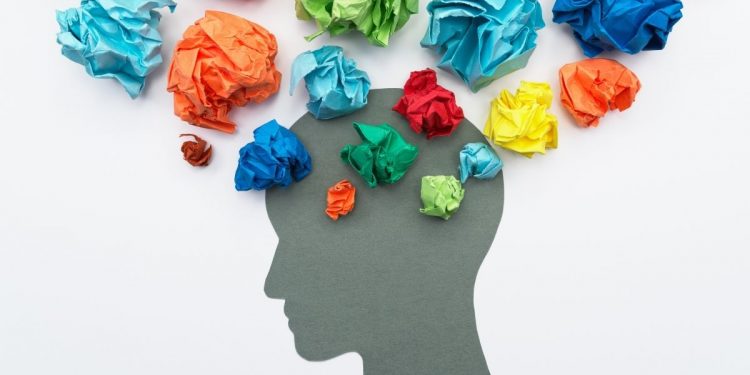Your mind is an important supporter of your body. What you think has the power to affect what you perceive. And how you feel affects your mindset. Your stress response is a splendid example of how your body is connected to your mind. The worry about finances, stress over jobs, and other problems are always there. It can cause a menace to your body such as tense muscles, muscle ache, and gastric issues. It can also produce a spike in blood pressure and other hazardous disorders.
On the other side of the spectrum, regular aches, or any serious disorder such as heart disease affects your emotions. You may feel sad, depressed, anxious, or stressed. This can adversely affect how you treat, manage or cope with any serious illness. However, your mind can have a positive effect on your health and how you treat yourself. Having a positive point of view will help and ease out your pain and decrease stress. This will help you get healthier faster compared to someone who is less hopeful.
The mind-body connection of trauma
The polyvagal theory describes various neurological factors. It explains different mechanisms of neural regulation. This is along with their related behaviors when perceiving a threat. It involves the brain cortex and immune response of our body. It also includes the endocrine part which is a hypothalamic-pituitary-adrenal pathway and gut-brain axes. A chain reaction activates under these situations. We call it the defence cascade. It includes four different responses.
- Arousal- Cardiac regulation reaction promotes either engagement or disengagement with the terrain after sensing trouble.
- Fight-or-flight response- The restraint of the vagus nerve and the sympathetic nervous system’s activation led to a rise in metabolic exertion to mobilize the body to either escape or face the trouble.
- Freeze response- When facing inevitable trouble, it leads to the vagus nerve stimulation. The metabolic activity of the body drops down. This leads to the freezing of the body.
- Quiescent immobility- After the trouble is gone, the parasympathetic system overrides, and metabolic exertion drops dramatically so the body can rest and heal.
The mind-body connection of emotions and immunity
Various researchers believe that there is a strong relationship between the affective states of the body as well as the immune system.
Preserved negative emotional states include status, depression, and anxiety. These can adversely worsen the immunity functions and harm other body functions. Now researchers show a relation between positive emotions and a variety of health outcomes. These include reduction of ill-health symptoms, pain reduction, and increase the longevity of life. If we talk about immunity and illness, we see a relation between positive emotions and improved immunity outcomes in conditions where weak immunity persists. This may include cancer, HIV, and other non-clinical populations during an exposure to the flu virus. But how is this possible? One path may be that positive emotion slightly changes the stress response of the body as well as its consequences. This is like the effect of the broaden and build theory.
The Role of the Mind in Disease Prevention
Inhibiting chronic diseases demands lifestyle changes. This includes eating healthier and exercising regularly. You need to adopt better sleeping habits. However, our ability to implement these changes requires a strong mindset. You need to change your attitude, actions, and behaviors. The control of all this lies in our minds. People who suffer from lifestyle disorders like PCOS and diabetes already know what kind of changes they need to make. But they do not want to make the change. Wellness is more of a mental process and less of a physical process.
Also, the APA did a Stress in America survey in 2011. In this, they found that 30 percent of Americans lacked willpower. Hence, they were not able to make the lifestyle changes they wanted to make. The mind is strong enough to influence our desire to do the right thing for our bodies. Our fears, thought patterns, worries, and anxieties take us away from wellness. Whereas other pathways show that positive emotions promote social bonds. Changes in lifestyle habits which are sleeping, clean eating, and regular exercise improve immunity.
Mind-Body Therapies
Mind-body therapies are healing techniques. They promote relaxation and encourage mindfulness. These therapies use our mind to affect the body, and vice versa. Some common mind-body therapies include acupuncture, art therapy, Cognitive Behavioral Therapy (CBT), group therapy, and guided imagery. It also includes meditation, music therapy, qigong, tai chi, and yoga. A doctor with a comprehensive approach helps you decide what combination of mind-body therapies is best for you and your lifestyle. Suppose you struggle with negative thought patterns. Then cognitive behavioral therapy will help you manage your thinking and give you a more positive outlook. A combination of yoga and meditation will help you stay calm if you are struggling with stress.
Mental health is important
The conversation about the mind-body connection has been around us for millennia now. From ancient philosophers and religions to modern science, everybody has their own opinions. There are varied opinions on if the mind and the body are related. It is doubtful if both mind and body can affect their actions. Also, we must know how that interaction is possible. Mainstream modern science and medicinal practices study and treat the mind and the body as two separate aspects of the body. The research and evidence-based practices support the notion of a bidirectional relationship between the two. This shows that we might benefit more if we start acknowledging these interactions. We need to start adopting a more holistic approach to our health and wellbeing including our medicinal practices.











Discussion about this post